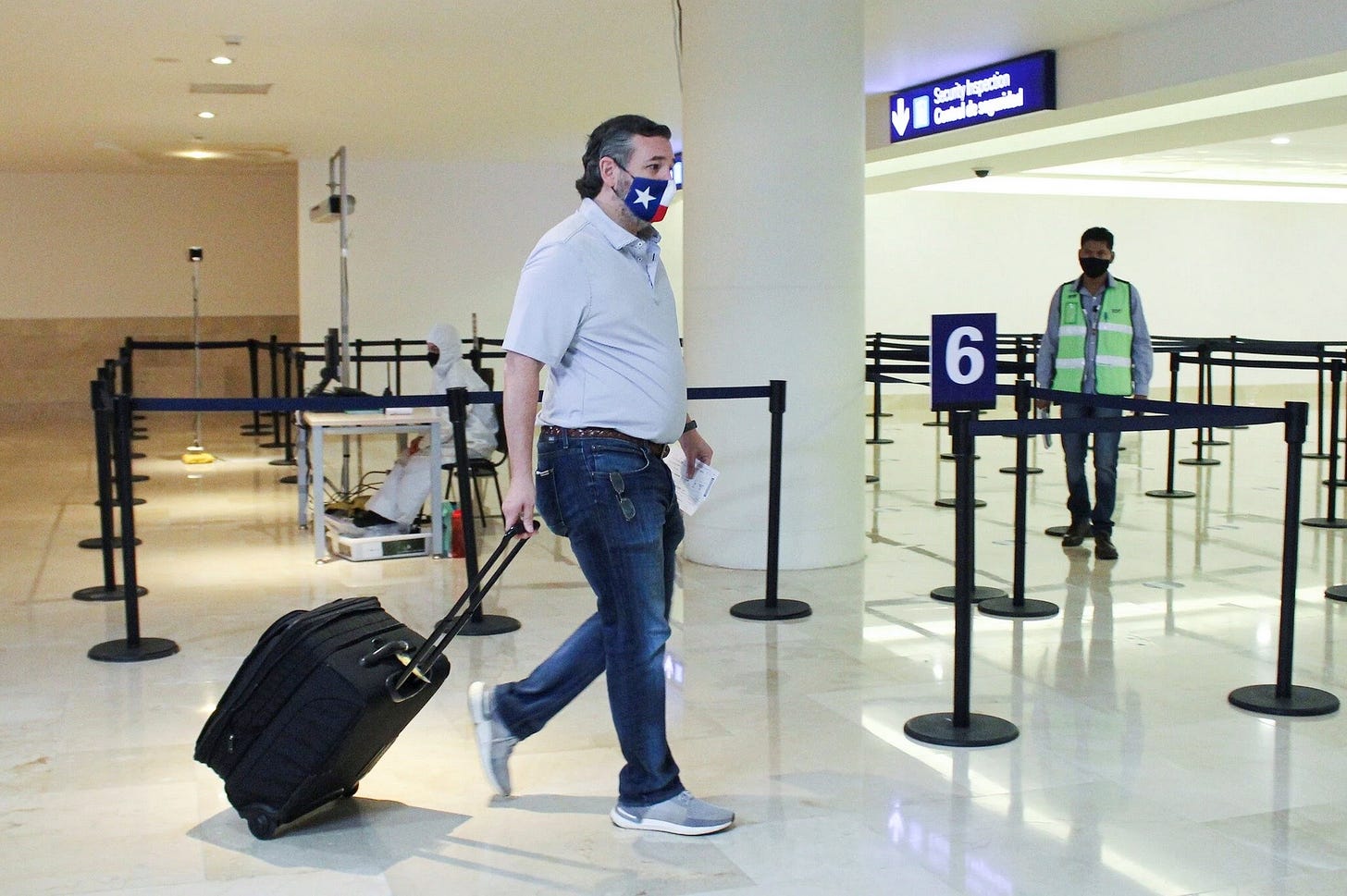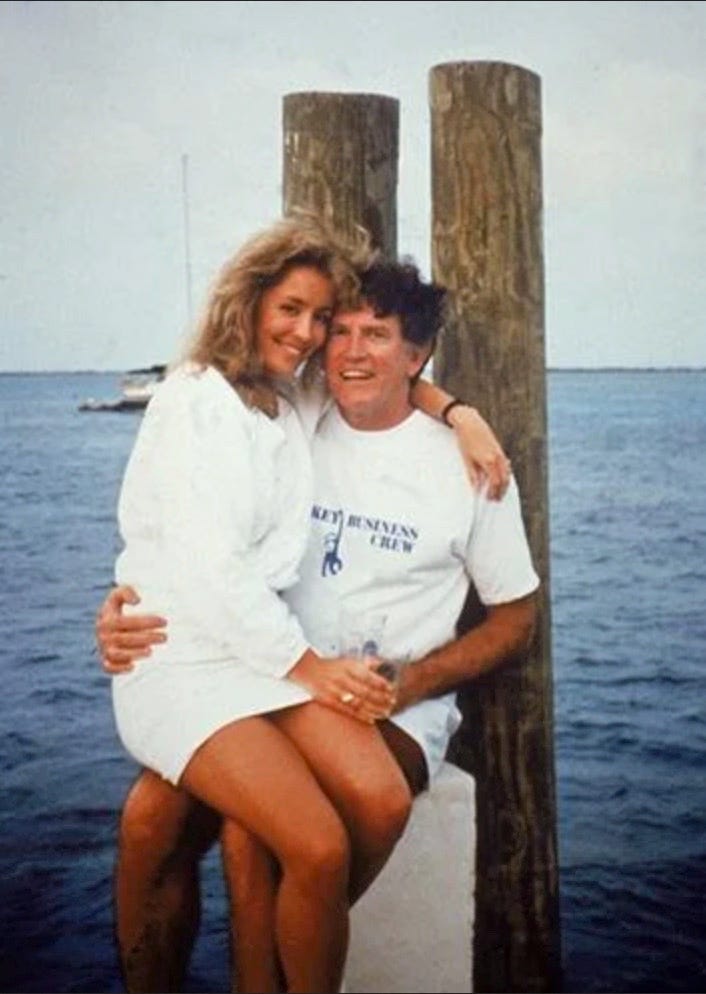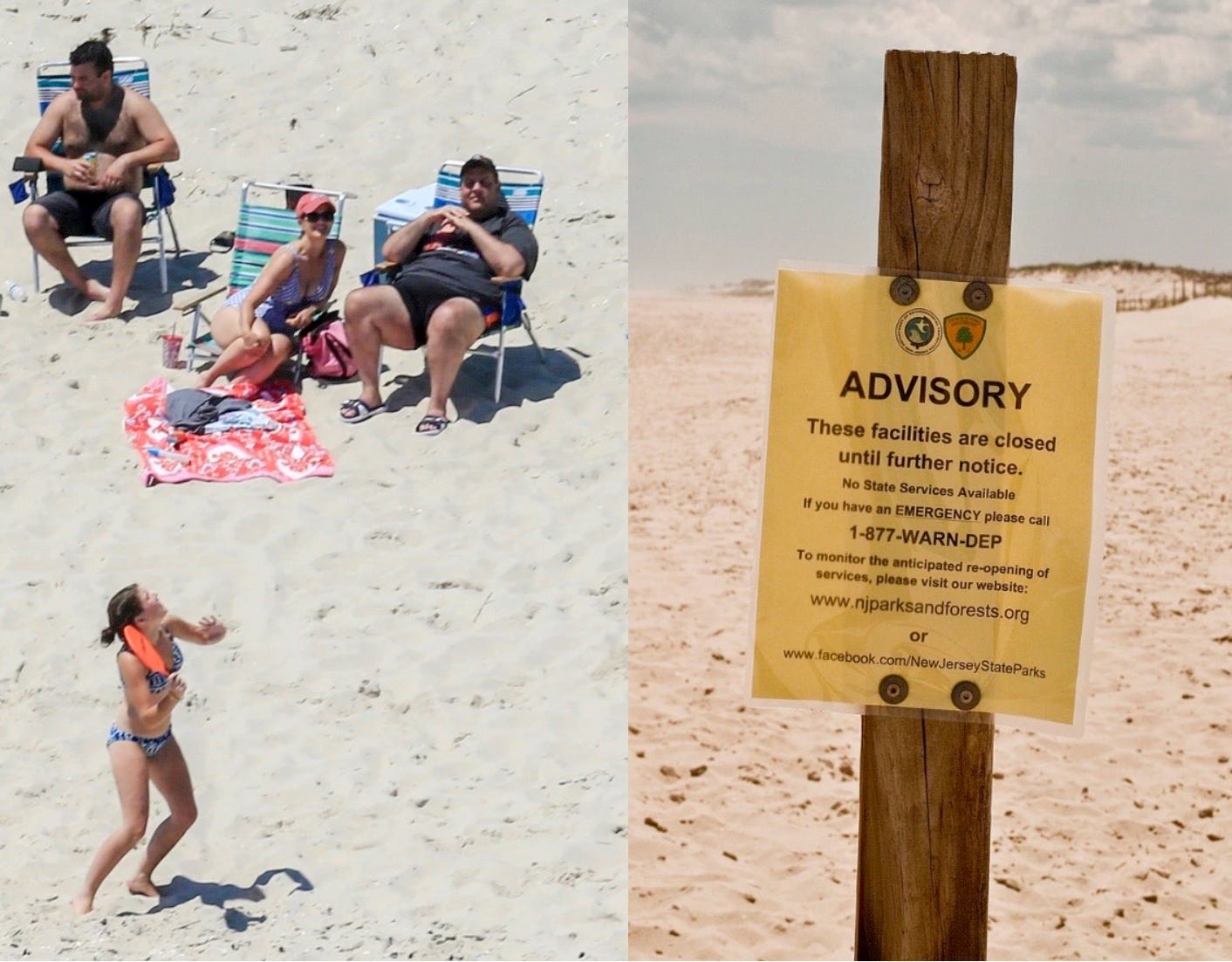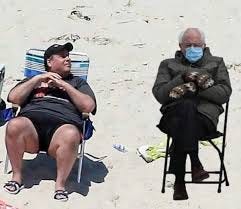Texas Senator Ted Cruz’s decision to escape his frozen home for a luxury resort in Mexico… while millions of his fellow Texans suffered destructive power outages and were even forced to boil their drinking water… is a blunt reminder that in politics, it’s often not about the substance, but about the “optics” of an elected official’s behavior. It’s about what it looks like to the people who voted for Cruz.
Cruz is not alone, not the first, and not even the most egregious violator of the expectations voters have of their elected officials.
In this instance, from the political optics point of view, Cruz apparently failed to consider that he flew to a place against which he supported building an anti-immigration wall, that he is wealthy enough to be able to afford a $300-a-night hotel in Cancun, while the people who voted for him were stuck with frozen pipes, unsafe water, no electricity and no heat in Texas during the deadly weather emergency. Nor, apparently, had he considered that as an elected official, he had a role in establishing the very energy policies which isolated his state’s electric grid from emergency help from other states. Or that he opposes federal help for other states suffering from the COVID-19 public health crisis… the very kind of emergency assistance President Biden promptly dispatched to Texas while Cruz was in Mexico.
Pretty quickly, Cruz acknowledged publicly he’d “obviously” made a “mistake.”
These kinds of political optics “mistakes” happen all the time, and sometimes with significant political consequences. Other times, voters move past the optics before the next election. It’s too soon to know if Ted Cruz’s widely-known presidential ambitions might be derailed by this episode. My guess is that voters will have forgotten about it by 2023, when he’ll have to decide whether to run.
Pre-social media era optics
It was March, 1987, when then Senator Gary Hart of Colorado seemed a shoe-in for the Democratic nomination for the presidency in the 1988 election. A neighborhood friend of ours worked on Hart’s Capitol Hill staff, and she could almost taste the White House in her future. Until Hart spent a weekend on a yacht trip from Miami to Bimini island with two young women, neither of whom was Hart’s wife. A now-famous photo showed Hart with Donna Rice in his lap. He was wearing a “Monkey Business Crew” T-shirt, after the name of the yacht.
My friend on his staff, whose specialty was media relations, understood immediately that Hart’s political career was over. Within a week, Hart “suspended” his presidential campaign, and it never recovered. The optics of his “monkey business” had devastating political consequences, even in the pre-social media era.
Social media speed the impact of political optics
Last August, the optics of another yacht trip dethroned Jerry Falwell, Jr., when he posted this snapshot and caption on Twitter, with his pants unbuttoned, a drink in one hand, and a pregnant woman in the other. He later deleted the picture, but it was too late.
It took only a few days before political optics forced Falwell to resign his post as president and chancellor of Liberty University, where he had instituted policies prohibiting students from drinking alcoholic beverages and from dressing immodestly.
In 2017, when public beaches were closed in New Jersey during a budget battle between the state legislature and then Gov. Chris Christie, the governor provoked unforgiving political optics when he was photographed with his family on an otherwise empty beach in violation of his own statewide shutdown.
The image of Christie in his beach chair was widely doctored and circulated in social media “memes” with sarcastic captions. Combined with a scandal involving his administration’s creation of politically-motivated traffic jams at the George Washington bridge, the optics of the beach episode helped undermine Christie’s own presidential campaign in 2015.
September 11 optics
One more example, outside the U.S. domestic arena. This one illustrates that optics aren’t always about the bad judgement of politicians.
In 2001, even as the twin towers of the World Trade Center were still burning in New York on September 11, Palestinians thousands of miles away were celebrating the attack by firing automatic weapons into the air in East Jerusalem. To these young Arabs, it seemed a good thing that someone had succeeded in such an audacious terror attack against the United States.

The celebrations were captured on film and video, and were broadcast by several news organizations worldwide… before Yasser Arafat, then Chairman of the Palestine Liberation Organization, saw them. Arafat quickly ordered the celebrations quashed (he tried to have the pictures confiscated, too), because he was engaged in secret negotiations with the United States over a possible Arab-Israeli agreement. Arafat understood that the optics of celebrating terrorism against the U.S. would likely spook his talks with U.S. Secretary of State Colin Powell… even though those very same optics might be applauded by his Palestinian followers.
Within hours, at Arafat’s direction, the PLO staged a photo op featuring Palestinian kids wearing “New York” t-shirts and praying solemnly over candles for the American victims. Arafat hoped to reverse the optics of Palestinians cheering the horrific attacks in the U.S.
The Palestinian leader’s negotiations with Washington were so important that Arafat went a step further to overcome the bad optics later the same day. He invited photographers to take pictures of him donating blood for the New York victims.

It didn’t help. In the crisis-response moment following 9/11, Powell’s talks with the PLO fell by the wayside, as Americans began blaming Arabs and other Muslims for the attacks.
A faster world for optics
When Gary Hart’s presidential ambitions were killed by political optics in 1987, it was newspaper photographs and television commentary that did him in. And the effect occurred mostly among the political class in Washington.
Today, anyone with modest social media skills can distribute (it’s now called “share”) sassy commentary and real or manipulated photos and video about anything or anyone worldwide in a matter of minutes. There are no editors to ask about consequences, to insist on obtaining responses from officials being mocked, or to publish balanced assessments of the significance of an incident in the grand scheme of things. Political optics have become a powerful, warp-speed phenomenon, hard to keep in context.










While Ted Cruz flew to Cancún, AOC raised $3 million for Texas. Optics work good and ill.